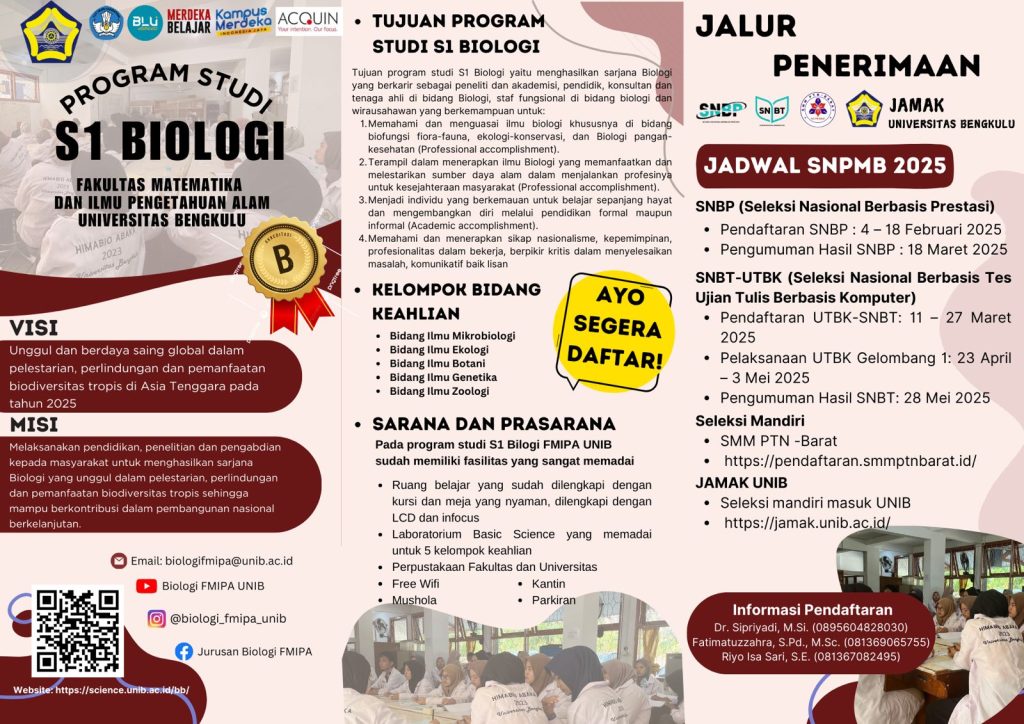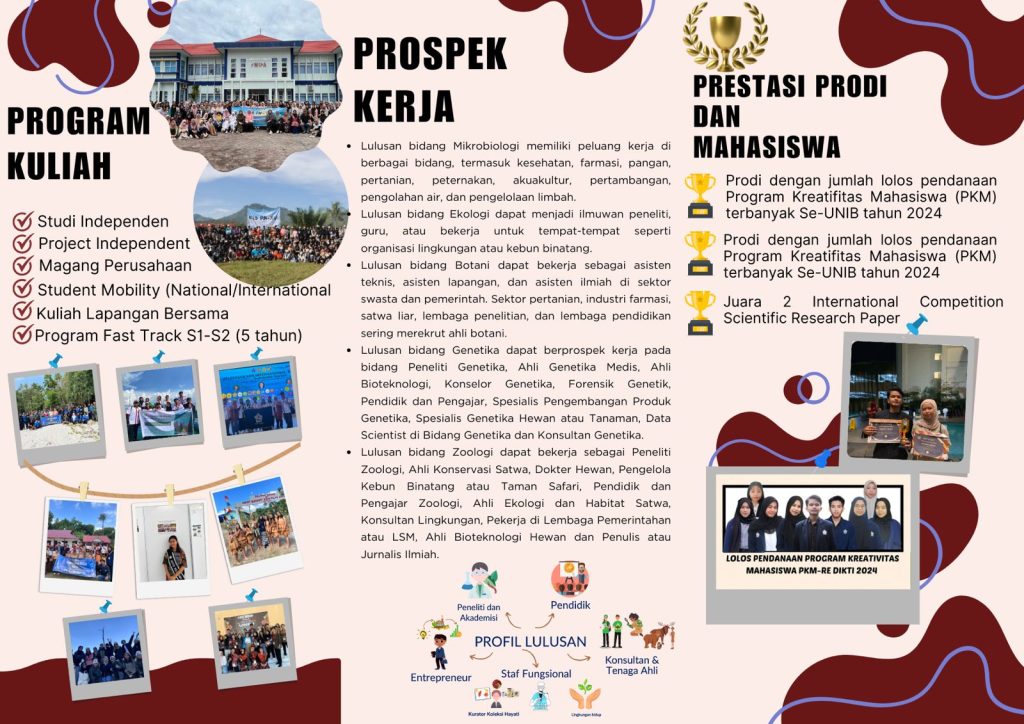The Bachelor’s in Biology (BB) study programme of the University of Bengkulu was established and started to operate on July 4th, 2001, based on the Decree of the Director General of Higher Education, Ministry of National Education, Republic of Indonesia, Number 2292/D/T/2001. The Department of Biology was established on October 31st, 2005, based on the Decree of the Director General of Higher Education, Ministry of National Education of the Republic of Indonesia Number 54/Dikti/Kep/2005. In the decree, the BB Study Program is managed under the authority of FMIPA UNIB, which was established in 1999 based on the Decree Number 195/O/1999 by Minister of Education and Culture.
The BB study programme was designed to be at the forefront of developing tropical biological natural resources conservation to support sustainable development by studying natural phenomena and playing a role in making positive innovations. The Study Program has superiority in three areas of research specialization: function of bio-flora, environmental biology, and bio food-health.
In the learning process, the BB study programme refers to: a) the SN-Dikti SPMI standard document in 2020; b) the Regulation of the Minister of Education, Culture, Research, and Technology Number 73/2013 on the application of KKNI in the field of higher education; and c) the Regulation of the Minister of Education, Culture, Research, and Technology Number 3/2020 on National Higher Education Standards (SN- DIKTI). The BB study programme fulfils the demands of KKNI Level 6 by preparing Learning Outcomes (LO) to meet the five profiles of the BB Programme graduates: Researchers and Academics, Educators, Consultants and experts (environmental, parks, and landscapes, biodiversity conservation, and bio-food and health), functional staff (curator of specimens, environment, BPOM, and hospitals), and entrepreneur.
Vission, Mission, and Objectives of The Bachelor’s in Biology (BB) Study Programme
Vission:
To excel and be globally competitive in the conservation, protection, and utilization of tropical biodiversity in Southeast Asia by 2025.
Mission:
Carry out education, research, and community service to produce Biology scholars who excel in the conservation, protection, and utilization of tropical biodiversity so that they are able to contribute to sustainable national development
Objectives:
To produce Biology graduates who have careers as researchers and academics, educators, consultants and experts in the field of biology, functional staff in the field of biology, and entrepreneurs who are able to:
- Understanding and mastering biological sciences, especially in the fields of flora-fauna biofunctions, ecology-conservation, and food-health biology. (Professional accomplishment)
- Skilled in applying biological sciences that utilize and conserve natural resources in carrying out their profession for the welfare of the community. (Professional advancements)
- Become an individual who is willing to learn lifelong and develop themselves through formal and informal education. (Academic advancements)
- Understand and apply the attitude of nationalism, leadership, professionalism in work, critical thinking in solving problems, communicative both oral and written, creative and innovative. (Social advancements)




